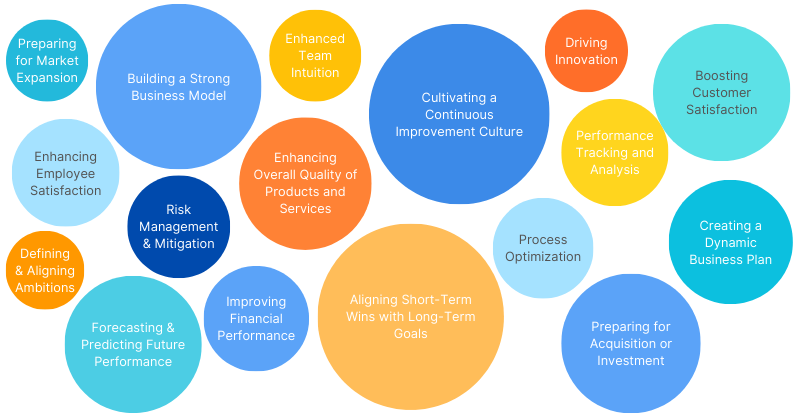
What is lead time?
Master Your Purpose. Own Your Freedom. With ICR.
Lead time is a measure of the duration from the beginning to the end of a specific process. Process owners are expected to optimally align all processes within the entire chain. They achieve this by translating the interconnections between processes into standards. These standards can apply to lead times as well as the quality of deliverables.
Actual performance across the entire chain is continuously compared to these standards and analyzed for areas of improvement.
Shorter lead times often indicate more efficient processes. This can result in lower costs and higher productivity, as tasks are completed more quickly. Additionally, shorter lead times enable organizations to deliver products or services to customers faster, which can increase customer satisfaction and improve competitive positioning.
Furthermore, organizations with shorter lead times can respond more rapidly to changes in market demand or trends. This agility allows them to adapt and maintain a competitive edge. Lead time also impacts inventory levels; shorter lead times can reduce the need for inventory, thereby lowering storage and capital retention costs.
By measuring and analyzing lead time, organizations can identify weaknesses in their processes and make improvements to further enhance efficiency.
Understanding and optimizing lead times is crucial for improving operational processes within organizations, ultimately aiming to enhance overall performance and competitiveness.
Sustainable success through controlled and manageable growth
The ICR Growth & Success SaaS Platform helps people and organizations find balance and peace, through controlled and manageable growth, with the aim of a healthy and sustainably successful organization. We do this through the all-encompassing ICR Cycle.
Being inControl in this process from ambition to result is crucial. Within the ICR Cycle, inControl actually means controlled and manageable growth. The dashboard gives you insight into the current status. In the video below you can see how the dashboard transforms from the moment you start using ICR.
With our 4 ICR subscription options, you can decide for yourself when to fully engage with the entire ICR Cycle. Choose our successful approach and start your process 'from ambition to result' with the more than affordable ICR Ambition Refresher subscription.
General applications of the ICR Growth & Success SaaS Platform
The ICR Growth & Success SaaS Platform addresses a wide range of business needs, making it a versatile tool for organizations striving for sustainable success. Below is an overview of its general applications, along with the added value it provides for businesses and organizations.
Learn more about the general applications of the ICR Growth & Success SaaS platform.


